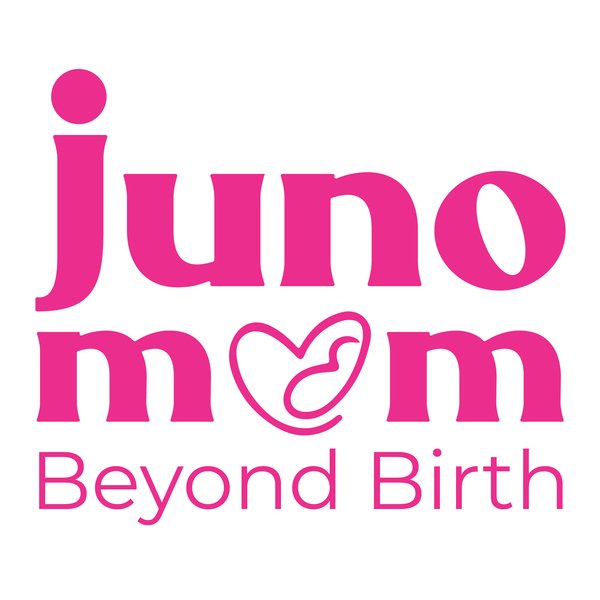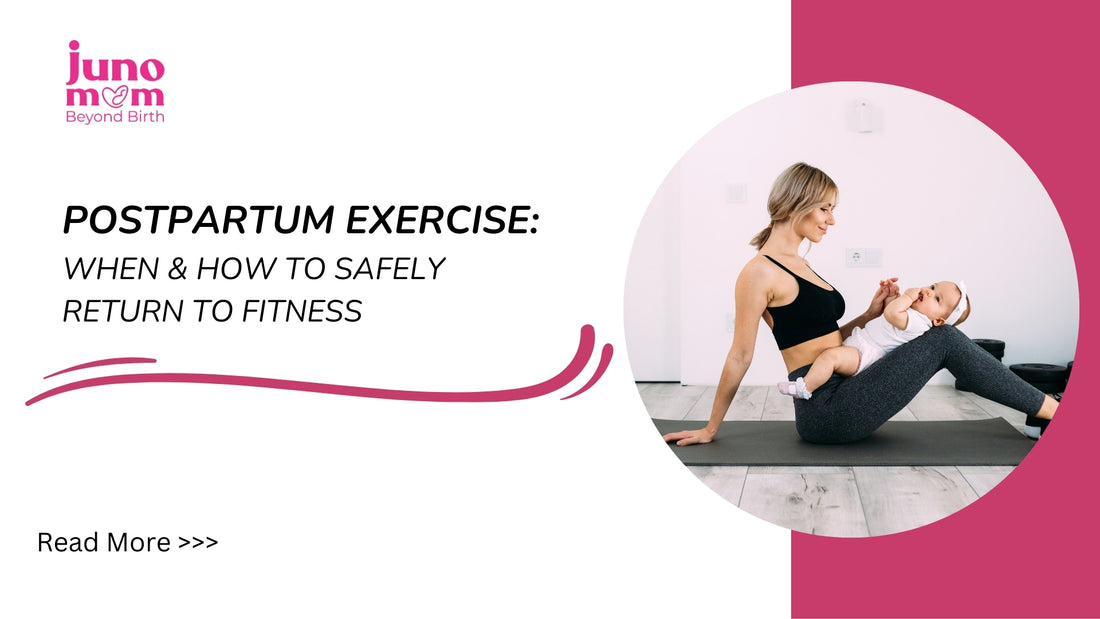The Postpartum Period is crucial especially when it comes to physical recovery and returning to fitness. Many new mothers wonder, "When is it safe to start exercising again?" and "How can I do it without risking my health?"

This blog will guide you through the essential steps for safely resuming exercise after childbirth, ensuring you regain strength and vitality while respecting your body’s recovery process.
Understanding the Postpartum Period

The postpartum period, often referred to as the "fourth trimester," is a time of significant physical and emotional changes. After childbirth, your body needs time to heal, whether you've had a vaginal delivery or a C-section. The initial 6-8 weeks postpartum is usually considered a recovery phase, during which your body is adjusting to the absence of pregnancy and the demands of motherhood.
When to Start Postpartum Exercise
Before you jump back into your pre-pregnancy workout routine, it’s crucial to get the green light from your healthcare provider. Most experts recommend waiting at least 6 weeks after both vaginal & c-section delivery.
However, this timeline can vary based on your individual health, how active you were during pregnancy, and the type of delivery you had.
The Importance of Listening to Your Body
Your body has gone through an incredible transformation, and it’s important to ease back into exercise gradually. Start with low-impact activities like walking, gentle yoga, or postpartum-specific workouts designed to rebuild core strength and pelvic floor muscles.
Pay attention to how your body feels during and after exercise. If you experience pain, discomfort, or unusual symptoms, such as heavy bleeding or dizziness, stop immediately and consult your healthcare provider.
Postpartum Exercise Guidelines: How to Do It Safely
Start Slowly and Progress Gradually
Begin with light activities and gradually increase the intensity as your body strengthens. Start with 10-15 minutes of light exercise and slowly work your way up.

Focus on Core and Pelvic Floor Strengthening
Pregnancy and childbirth can weaken your core and pelvic floor muscles. Incorporating exercises like Kegels, pelvic tilts, and gentle abdominal workouts can help rebuild these areas.

Stay Hydrated and Nourished
Your body is still recovering, and if you’re breastfeeding, you’ll need extra hydration and calories. Ensure you’re eating a balanced diet that supports your energy needs.

Prioritize Rest and Recovery
Overexertion can do more harm than good. Make sure you’re getting enough rest and listen to your body’s signals. Rest days are just as important as workout days.
Consider Postpartum Classes or Personal Trainers
If possible, join a postpartum exercise class or work with a trainer who specializes in postpartum fitness. They can guide you on safe and effective exercises tailored to your needs.
Exercises to Avoid in the Early Postpartum Period
While it might be tempting to dive back into high-intensity workouts, it’s important to avoid exercises that put undue stress on your body, especially your abdomen and pelvic floor. Here are some activities to avoid in the early postpartum period:
- Heavy lifting: This can strain your core and pelvic floor.
- High-impact cardio: Running, jumping, and other high-impact activities should be avoided until your body is stronger.
- Crunches and sit-ups: These can put too much pressure on your healing abdomen.
- Intense weight training: Stick to lighter weights and focus on form over intensity.
The Role of Mental Health in Postpartum Fitness
Returning to fitness isn’t just about physical health; mental well-being plays a crucial role as well. The postpartum period can be emotionally challenging, with many new mothers experiencing feelings of anxiety, depression, or overwhelm.

Exercise has been shown to improve mood and reduce stress, but it’s essential to approach it with self-compassion. Set realistic goals, celebrate small victories, and don’t be too hard on yourself if progress feels slow.
Returning to fitness after childbirth is a journey, not a race. It’s about regaining strength, boosting your energy, and nurturing your well-being.
Remember, every woman’s postpartum experience is unique, so listen to your body, seek professional advice when needed, and most importantly, be kind to yourself.
Aid your Postpartum Recovery with Top Postpartum Essentials on Juno Mom. From Abdominal Belts that help with Diastasis Recti to Peri Bottle for gentle hygiene, Juno Mom caters to all your 4th trimester needs.


